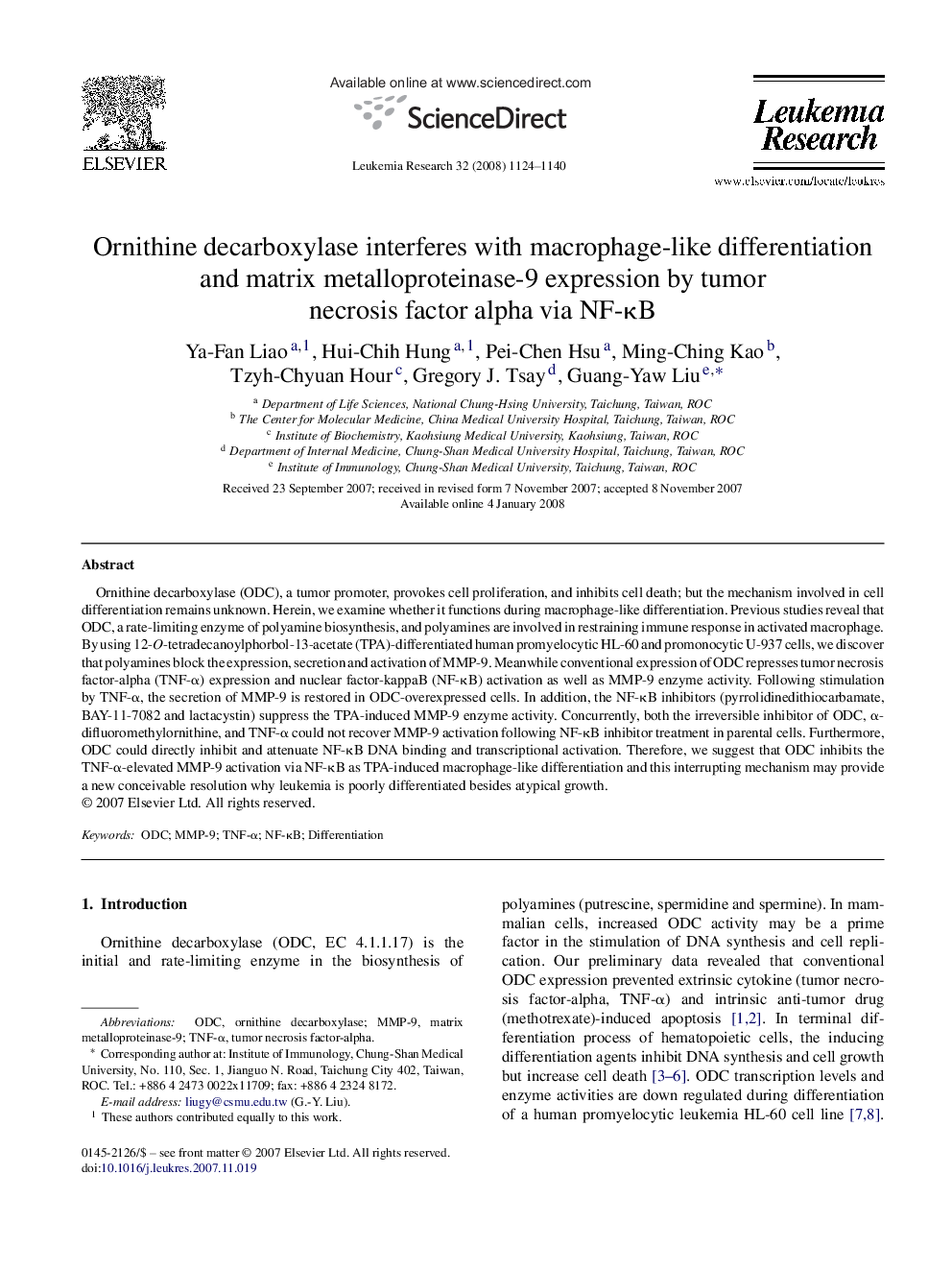| Article ID | Journal | Published Year | Pages | File Type |
|---|---|---|---|---|
| 2137954 | Leukemia Research | 2008 | 17 Pages |
Ornithine decarboxylase (ODC), a tumor promoter, provokes cell proliferation, and inhibits cell death; but the mechanism involved in cell differentiation remains unknown. Herein, we examine whether it functions during macrophage-like differentiation. Previous studies reveal that ODC, a rate-limiting enzyme of polyamine biosynthesis, and polyamines are involved in restraining immune response in activated macrophage. By using 12-O-tetradecanoylphorbol-13-acetate (TPA)-differentiated human promyelocytic HL-60 and promonocytic U-937 cells, we discover that polyamines block the expression, secretion and activation of MMP-9. Meanwhile conventional expression of ODC represses tumor necrosis factor-alpha (TNF-α) expression and nuclear factor-kappaB (NF-κB) activation as well as MMP-9 enzyme activity. Following stimulation by TNF-α, the secretion of MMP-9 is restored in ODC-overexpressed cells. In addition, the NF-κB inhibitors (pyrrolidinedithiocarbamate, BAY-11-7082 and lactacystin) suppress the TPA-induced MMP-9 enzyme activity. Concurrently, both the irreversible inhibitor of ODC, α-difluoromethylornithine, and TNF-α could not recover MMP-9 activation following NF-κB inhibitor treatment in parental cells. Furthermore, ODC could directly inhibit and attenuate NF-κB DNA binding and transcriptional activation. Therefore, we suggest that ODC inhibits the TNF-α-elevated MMP-9 activation via NF-κB as TPA-induced macrophage-like differentiation and this interrupting mechanism may provide a new conceivable resolution why leukemia is poorly differentiated besides atypical growth.
